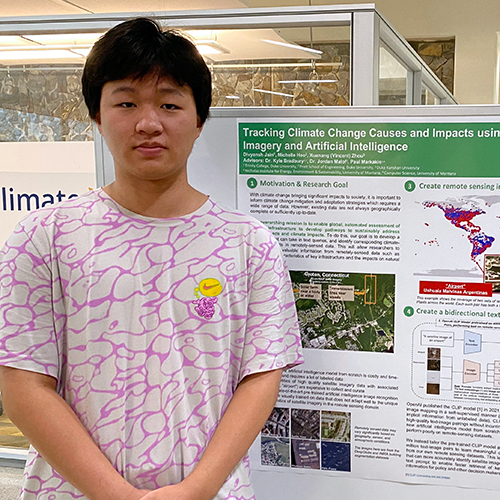
Growing Number of “Plus” Programs Adding Up to Powerful Research Experiences
Students of all levels are taking part in collaborative summer research projects, working alongside other teams on campus
By the end of the spring semester, most students are eager to leave campus for the next few months. But rising senior Vincent Zhou was thrilled with his decision to stay in Durham last summer. With two teammates, he spent ten weeks developing a globally scalable model for tracking climate change causes and impacts.

Guided by a faculty member and a Ph.D. student, the team worked alongside many other teams in a communal environment based in Gross Hall, gathering frequently for workshops, shared meals, problem-solving and social outings. Many students even lived together in the same dorm.
“In classrooms, there is not a lot of collaboration,” said Zhou, a dual-degree student at Duke and Duke Kunshan, citing individual work on assignments and exams, “but in Data+, everyone collaborates. Everyone can help each other find solutions, find mistakes and think of new ideas. I think it is the most fantastic way to learn.”
Collaboration and Interdisciplinarity
Last year, 260 undergraduate and graduate students took part in team-based research projects through Data+ and other “plus” programs on campus.
“I’ve seen an incredible amount of collaboration and interdisciplinarity,” noted Mary Pat McMahon, vice provost/vice president of student affairs, during an end-of-summer poster session. “I’ve talked with people who have changed their majors [because of this experience].”
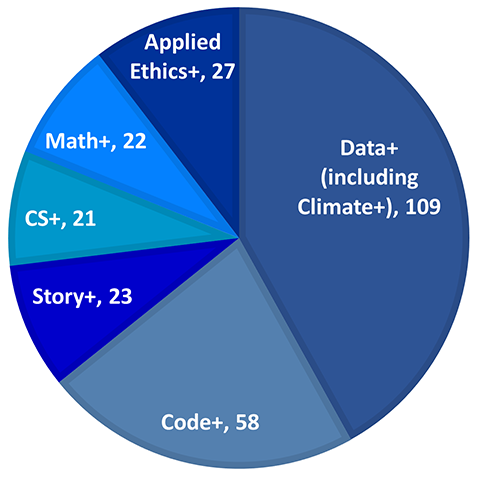
Program alumni say the experience builds teamwork and presentation skills, clarifies intellectual pathways and opens up later opportunities for internships and employment.
Expansion of the Model
Data+ was launched in 2015, as part of the Bass Connections Information, Society & Culture theme, to extend learning opportunities into the summer.
Since then, the “plus” model has expanded to other Duke summer programs, including Code+, Story+, CS+, Math+, Climate+ and Applied Ethics+. Joining them in 2024 are Arts+, History+ and I&E+.
Plus Programs at a Glance
In Summer 2024, students will participate in more than 70 research teams through nine programs.
Data+

Small teams of undergraduates and master’s students apply data science techniques to a variety of interdisciplinary projects. Project leads are typically faculty from diverse areas of the university, with frequent participation from community and industry partners. Ph.D. students serve as mentors and project managers.
Data+ is led by the Rhodes Information Initiative at Duke. In addition to Duke students, a handful of students from other universities take part every year.
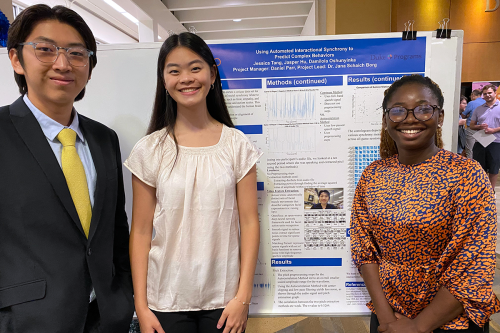
Climate+

Part of the Data+ program, Climate+ aims to advance understanding of climate change’s causes and societal impacts and to identify sustainable solutions. Project leads include data science experts as well as climate, environment and energy researchers and practitioners.
Climate+ is led by the Rhodes Information Initiative at Duke in partnership with the Nicholas Institute for Energy, Environment & Sustainability.
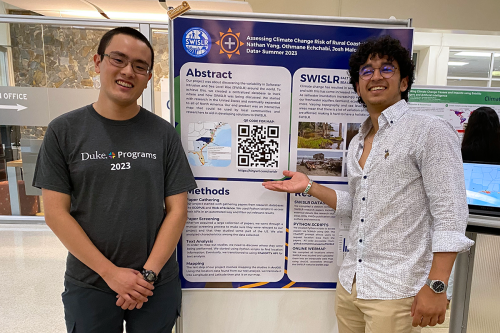
Code+

Code+ focuses on projects in web and mobile application software development for Duke undergraduate students. Project leads are professional IT staff. Staff in Duke departments are key stakeholders, and some projects have corporate sponsors with whom the students interact throughout the program.
Code+ is led by the Office of Information Technology. Read about last summer’s projects.
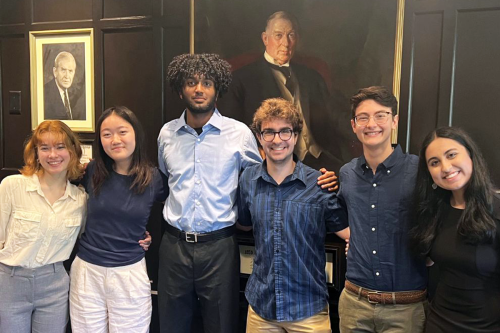
Applied Ethics+

In Applied Ethics+, small interdisciplinary teams of Duke undergraduate and graduate students work with clients on pressing challenges in policy, technology, research and ethics. The program is led by Duke Science & Society.
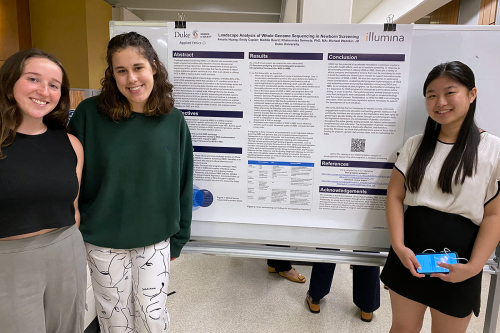
CS+

Led by the Department of Computer Science, CS+ gets Duke undergraduates involved in research projects within a supportive community environment. Teams are mentored by a faculty member and a graduate student. The experience is an entry point into computer science research and applications beyond the classroom.
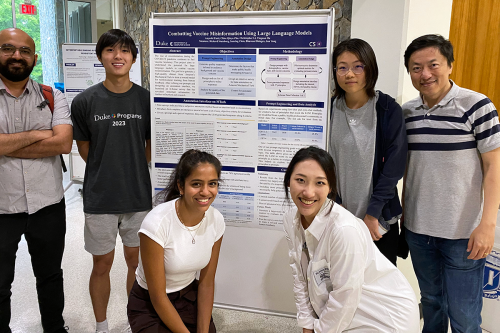
Story+

Through Story+, students learn how to conduct qualitative, humanities-based research and communicate their findings through effective storytelling techniques.
Undergraduates work in small teams with graduate student mentors. Project sponsors range from faculty, librarians, archivists and research staff to nonprofit organizations.
Story+ has been led by the Franklin Humanities Institute and Bass Connections, with support from Duke Libraries. Read about last summer’s projects.
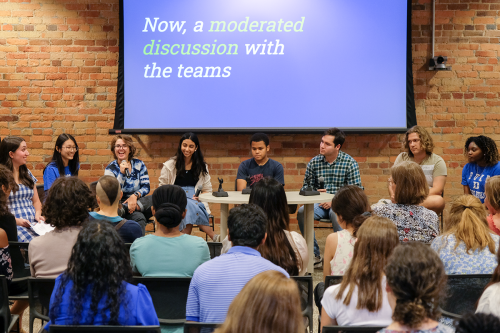
Math+

Math+ engages students in collaborative research in a wide variety of areas in mathematics. Intended to complement the Program for Research for Undergraduates (PRUV), it is open to undergraduates at Duke and NC Central University. Each team is led by a faculty mentor, assisted by a graduate student.
Math+ is led by the Department of Mathematics, Rhodes Information Initiative at Duke and the Office of the Dean of Academic Affairs.
Arts+

In this new program led by Duke Arts, graduate and undergraduate students will work in collaborative, behind-the-scenes environments to learn about arts administration and the creative work it takes to build an artistic product.
History+

Small teams of undergraduates, mentored by a graduate student and a faculty member, will engage in historical research projects with community partners, producing outputs such as an exhibit at the Museum of Durham History or a report for the North Carolina Historic Sites office. This new program is led by the Department of History.
I&E+

Led by Duke Innovation & Entrepreneurship, this new program is designed to give undergraduates hands-on business and research experience while building skills in creativity, problem-solving and project management. Small teams will be partnered with a local organization to learn and apply innovation and entrepreneurship methods, frameworks and mindsets to strategic projects.
Main image: Ethan Shang ’26, Sreya Gnanavel ’26, Unzila Sakina ’26 and Lauren Walker ’25 present their Data+ project, Strengthening Partnerships: Durham Schools and Local Universities. A Bass Connections team is moving their work forward this year.
